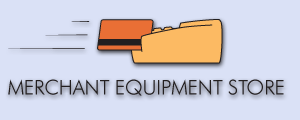10 steps to help prevent chargebacks for Internet merchants
This article is to help Internet merchants to prevent credit card chargebacks. Many of these are common sense but they are often overlooked, and review never hurts.
- Always use the AVS and CVV systems for online orders.
AVS is absolutely necessary, for online orders, and if available, CVV should always be used for online orders. These two methods combined greatly reduce the chance of a merchant accepting a fraudulent transaction. - Fully investigate any abnormally large orders or large orders requesting overnight shipping before shipping the product out.
Call the customer to verify their information. Don't ship any product until you have spoken to the card holder, and verified their address and personal information. - If you see that a card had declined several times, verify the order by calling the purchaser before shipping any product.
Call the customer to verify their information. Don't ship any product until you have spoken to the card holder, and verified their address and personal information. - Fully describe your refund and return policies on your website.
This may not prevent a chargeback, but it will help you fight a chargeback. With a clear refund and return policy on a website, it makes it hard for a customer to win a chargeback if they are going around your stated policies. - Provide accurate descriptions and images of your products on your website.
By providing accurate descriptions and images on your website, you can help prevent a chargeback due to a customer ordering the wrong product. - If your business name does not exactly match the name that appears on credit card transaction statements, make sure your customers are aware of this.
When a customer reads a credit card statement, if the name of a business does not sound familiar, then they may do a chargeback for an unauthorized charge. While, these charges are often won, it is still an inconvenience to the merchant, that can be avoided. - Be very cautious of any foreign orders, especially if originating from Nigeria, or Indonesia.
The majority of credit card fraud comes from these countries. While it is not a good practice to turn down orders, we don't suggest accepting any order from these countries even if they call in for the order. A good policy is to accept only a money order, and then wait 9 - 10 days for the money order to clear the bank before sending out any product. Its not worth the risk. - Be cautious of any order with a foreign shipping address.
If it is a domestic order with a foreign shipping address, it is very likely to be a fraudulent transaction. We don't suggest accepting any transaction that matches this type. Only ship to the card holders address, and investigate the order before shipping. - Only ship to the billing address, or verify the order if the shipping address is different for the billing address.
Most fraudulent transaction will have a different shipping address than the billing address. By only allowing shipping to the billing address, or verifying the order by calling the customer you can greatly reduce the chance of a processing a fraudulent transaction. - Do not process any order where a customer is willing to pay more for the item for no apparent reason, or for an expedited order process.
This is another very common sign of fraud. If the card is stolen, the buyer wants to get the product as fast as possible, and will pay more for the product or will pay more for expedited shipping. This will usually come in an offer such as: What if I pay you more for the product? Can you get it to me faster then? Or, the merchant offers to pay more than the advertised price. Why would anyone want to pay more than the listed price?
Internet Credit Card Fraud is on the rise, and online merchants have to protect themselves to avoid excessive charges due to chargebacks and potentially being shut down. It takes a little extra effort on the merchant's part, but in the end, the extra attention pays off.
One of the most common scams comes from foreign countries where a person will order with a stolen card, and have the products delivered to an American forwarding address. Once the products leave the country, there is little that a merchant can do to reclaim their lost goods. An unusually large order, or very uncommon products being ordered can usually classify these orders. Other signs are an incorrect billing address, or the customer wanting expedited shipping.
For any suspicious orders, we recommend calling the customer to verify their information, and possibly requiring a signature and copy of drivers license on the invoice. This can be easily accomplished through a fax machine, and while not the perfect solution, it will prevent the majority of fraudulent transactions. This is a small inconvenience to customers, but it is well worth the extra effort to prevent fraud. Many customers will be pleased that you are so adamant in preventing fraud, and will be happy to oblige. Security is your responsibility, and you are responsible for any fraudulent transaction that you process.


